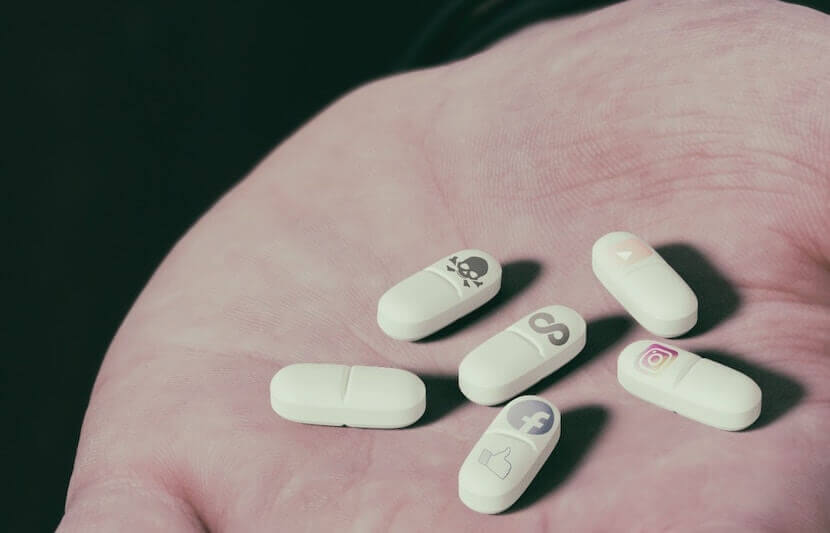Social media has taken the world by storm, making it so easy for people to stay connected.
Facebook, alone, had 1.49 billion daily active users on average in September 2018. Snapchat had 186 million daily active users as of third quarter 2018.
Instagram has more than 500 million daily active users worldwide.
The use of social media, however, has its disadvantages — issues range from privacy to mental health risks from spending too much time on social media.
Now, a new study has linked excessive social media use to risky decision-making, which is commonly associated with substance abuse disorders.
“Around one-third of humans on the planet are using social media, and some of these people are displaying maladaptive, excessive use of these sites,” Dar Meshi, an assistant professor of advertising and public relations at Michigan State University and lead author of the study, said in a statement. “Our findings will hopefully motivate the field to take social media overuse seriously.”
The research comes at a time when American users are spending more and more time on social media, and is the first, according to the researchers, to investigate the relationship between excessive social media use and risky decision-making behavior.
“Decision making is oftentimes compromised in individuals with substance use disorders,” Meshi said in a statement. “They sometimes fail to learn from their mistakes and continue down a path of negative outcomes. But no one previously looked at this behavior as it relates to excessive social media users, so we investigated this possible parallel between excessive social media users and substance abusers. While we didn’t test for the cause of poor decision-making, we tested for its correlation with problematic social media use.”
The study
The study, conducted at a large German university, involved 71 participants between the age of 18 and 35, who were recruited through posted flyers.
They all self-reported that they had no history of a psychiatric disorder, including substance use or gambling disorders.
The participants were first asked to complete a survey intended to measure their psychological dependence on Facebook, which is similar to one measuring addiction. The researchers focused on Facebook because it was the most widely used social network platform at the time.
In the survey, the participants were asked about their preoccupation with Facebook, how they felt when they couldn’t use it, if they had attempted to quit it, and how it has impacted their job or studies.
They were then asked to perform 100 trials of a computerized version of the Iowa Gambling Task to measure value-based decision-making. These trials were broken up into five blocks of 20 trials each.
Each participant was presented with four decks of cards — A, B, C, and D — on a screen for each trial, and had to choose a card, receiving a specified amount of play money reward for this choice.
Decks A and B were considered disadvantageous because they produced high immediate gains ($100) for each choice but provided sizeable punishments. In contrast, decks C and D, which produced low immediate gains ($50) for each choice and provided smaller punishments compared to the other decks, were advantageous.
The participants knew beforehand that some decks were better than others and that, if they wanted to do well, they should avoid the bad decks and choose cards from the good decks.
The participants also knew before they started that their goal was to make as much money, and avoid losing as much money, as possible. They could pick cards from any deck and swap them whenever they want.
The researchers also assessed the participants’ level of depression.
The findings
The researchers found a link between social media use and risky decision-making.
They found that by the end of their gambling task, when the participants performed worse by choosing from bad decks, their use of social media was more excessive. In contrast, when they performed better in their gambling task, their use of social media was less.
This result is similar to outcomes of substance abusers on the Iowa Gambling Task, which show the same decision-making deficiency, according to the researchers.
They believe this study has important implications for society.
“With so many people around the world using social media, it’s critical for us to understand its use,” Meshi said in a statement. “I believe that social media has tremendous benefits for individuals, but there’s also a dark side when people can’t pull themselves away. We need to better understand this drive so we can determine if excessive social media use should be considered an addiction.”



